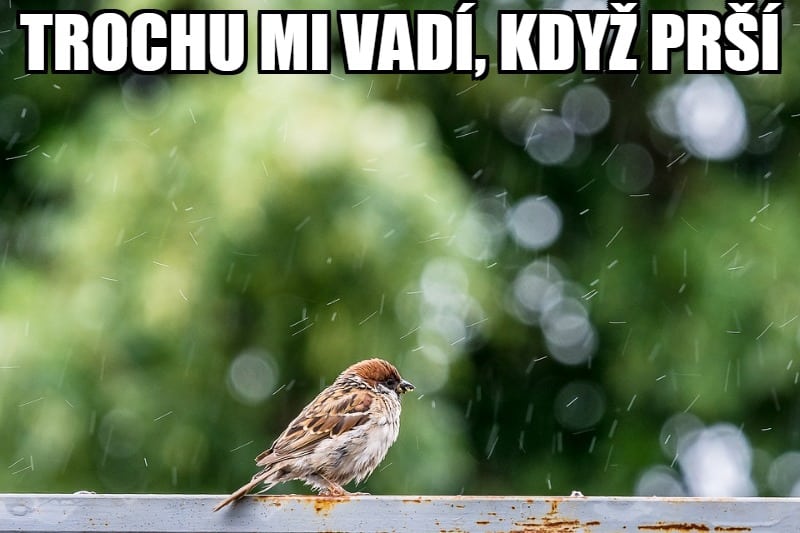5.9 – vadit 'to bother'
The verb vadit ‘to bother’ is another important verb for you to learn. Like the verb líbit se, or the verb slušet, it will be used with the dative case (to make sense of it, you have to think of it being something like it is bothersome to you, or something like that).
Take a look at some of these sentences related to the weather:
|
|
|
|
|
Vadí mi, když je hodně horko. It bothers me, when it is very hot. |
Vadí ti, když je zima? Does it bother you when it’s cold out? |
Nevadí mu, že je horko. It doesn’t bother him if it’s hot. |
|
|
Když je venku třeba třicet nebo čtyřicet stupňů, tak mi to vůbec nevadí. |
Of course, other things can bother you as well:
|
Vadí mi, když Petr poslouchá hudbu nahlas. It bothers me when Petr listens to music out loud. |
Ta písnička nám opravdu vadí. That song really bothers us. |
Tomášovi vadí, když Eva kouří. It bothers Tomáš when Eva smokes. |
The important thing to remember with all of these is the basic rule of the construction: vadit DAT (person that is being bothered)
Images used in this document come from these sources.







